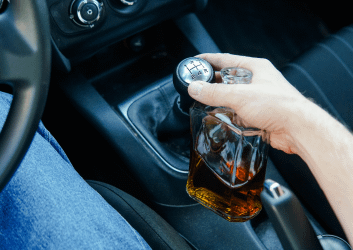
January 14, 2011
The California State Board of Nursing may discipline any action considered “unprofessional conduct”, such as a DUI, under the Nurse Practice Act located in the California Business & Professions Code and Title 16 of the California Code of Regulations. The board also may take disciplinary action against a certified or licensed nurse for drug-related transgressions, including using drugs or alcoholic beverages in a way dangerous or injurious to oneself or others. The Board of Nursing has the power to discipline for issues relating to controlled substances and substance abuse.
According to the Business and Professions Code, a plea of guilty or a verdict of guilty or a conviction following a plea of no lo contendere are all considered convictions, thereby giving the Board the right to take action.
You should report to the Board of Nursing any felony conviction, DUI and substance-related convictions whether felony or misdemeanor, misdemeanor convictions for any offense substantially related to professional duties/activities, misdemeanor convictions for charges that might be considered unprofessional conduct, and situations where a court orders you to participate in an in-patient or out-patient substance abuse program.
If you do not report a conviction you are required to report, you may face more severe professional discipline. Most professional boards receive notification from the courts every time a licensed professional is convicted of a crime. Even if your professional status never came up during your trial or plea, your identifying information is cross-indexed with the professional directories so that the Board can receive notice. You may remember supplying the board with your fingerprints upon applying for or renewing your license—that was so that the Board of Nursing could obtain notification of future criminal convictions you may receive.
The board is permitted to take disciplinary action after the time for appeal has elapsed, or if the judgment of conviction has been affirmed on appeal, or when an order granting probation is made suspending the imposition of sentence. If you have been convicted or pleaded guilty, the board likely has received notice from the court but is waiting to take disciplinary action against you until the conviction rests. Boards generally look more favorably upon members who are forthcoming about their actions and attempt to cooperate with the disciplinary process—this system is different than the typical criminal defense system. Although of course you would not want to disclose prematurely in case you receive a favorable outcome in the courts and are then under no obligation to report.
The Board has the power to discipline members convicted of a criminal offense involving any controlled substance as defined in Division 10 of the Health and Safety Code or any dangerous drug or dangerous device as defined in Section 4022. The Board’s power to discipline applies to improper possession, use, or distribution of a controlled substance.In addition, the Board may discipline members who use any controlled substance or alcoholic beverages to an extent or in a manner dangerous or injurious to himself or herself, any other person, or to the public.
This means that the Board can discipline its members for DUIs, especially where an injury has resulted. The Board not only has the power to discipline members convicted of a criminal offense involving any controlled substance, but also to discipline its members who are committed or confined by a court for substance abuse or addiction.
No! The Nursing Board reviews matters on a case-by-case basis, considering factors such as the nature of the act, harm or potential harm to the public, prior criminal and/or disciplinary history. The Board takes a conviction as conclusive evidence of unprofessional conduct, but that is not the end of the story because although you may not be able to dispute that the circumstances giving rise to the conviction occurred, the Board will likely be interested in your explanation and you’re your entire record. In addition, the board considers any mitigating circumstances and evidence of rehabilitation, so it behooves you to self-report and, if the cause of the conviction is something that can be addressed through therapy or a substance abuse program, to enroll immediately.
The Nursing Board takes felony convictions and misdemeanors related to job performance, controlled substances, and substance abuse seriously. If you are a professional facing a potential criminal conviction, you need an experienced criminal defense attorney who has your personal and professional interests at heart. Do not delay; contact Defense Attorney Thomas Greenberg now to set up a time to consult about your case. Your carreer is on the line, call (650) 242-0021 now.
Leave a Reply
Your email address will not be published. Required fields are marked *